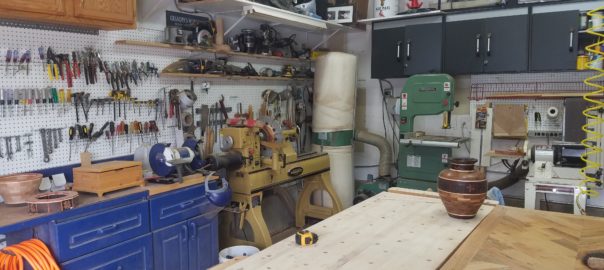Are You Using the Right of Dust Mask?
You are probably inhaling airborne dust, paint or fumes from oil-based finishes if you are not using the right dust mask. If you are inhaling these pollutants, they will cause serious health problems and using the wrong dust mask or respirator will not help.
In My Case, constant coughing attacks, headaches, dizzy spells and muscle cramps make it impossible for me to work in my shop for any length of time, so first thing I do when I enter my woodshop now is put on my dust mask. Unfortunately, I wasn’t paying attention to the dangers of wood dust when I first started wood working so I paid the price. I developed COPD and several other health problems.
Read more about health problems caused by wood dust. Click here: https://artisticfirewood.com/a-response-to-my-beautiful-death/
See the Island Woodturners Guild for more information on wood toxins and their dangers to your health: Island Woodturners
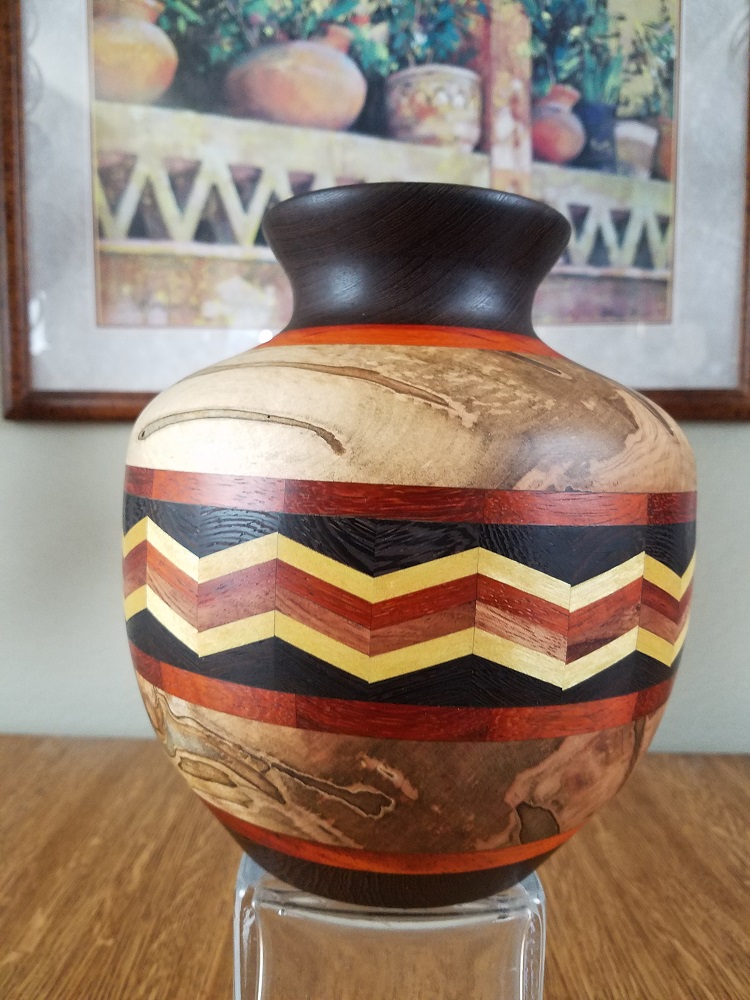
This woodturning is made from spalted pine, wenge, yellow heart and padauk. Dust from each of these woods may cause health problems.
Spalted woods may contain fungus spores. Pieces of ground up fungi can cause an inflammatory or an allergic response in many people.
Breathing Wenge, Yellow Heart, Padauk and other exotic wood dust can cause breathing and central nervous system problems.
Start with the Right Dust Mask
A quality dust mask or respirator is essential to prevent dust from reaching your lungs. How often have you walked into the shop, turned on your dust collector, and forgot or ignored your dust mask? I only have one cut to make you might have thought. But one cut became two cuts, then three cuts and an hour later you still haven’t put on the dust mask that is more important than the dust collector that you did turn on.
No dust collector is perfect! They cannot collect all of the fine particles, so you have to use a quality dust mask.
Choosing the Right Dust Mask or Respirator
Most experts consider an N95 mask to be the minimum quality mask to protect our lungs from dust. Fumes from paint and oil-based finishes cause serious health problems but they require a respirator with the P95 rating. The N95 and P95 ratings are two examples that the National Institute for Occupational Safety and Health (NIOSH) uses.
What is the Difference Between N, R and P Series Masks?
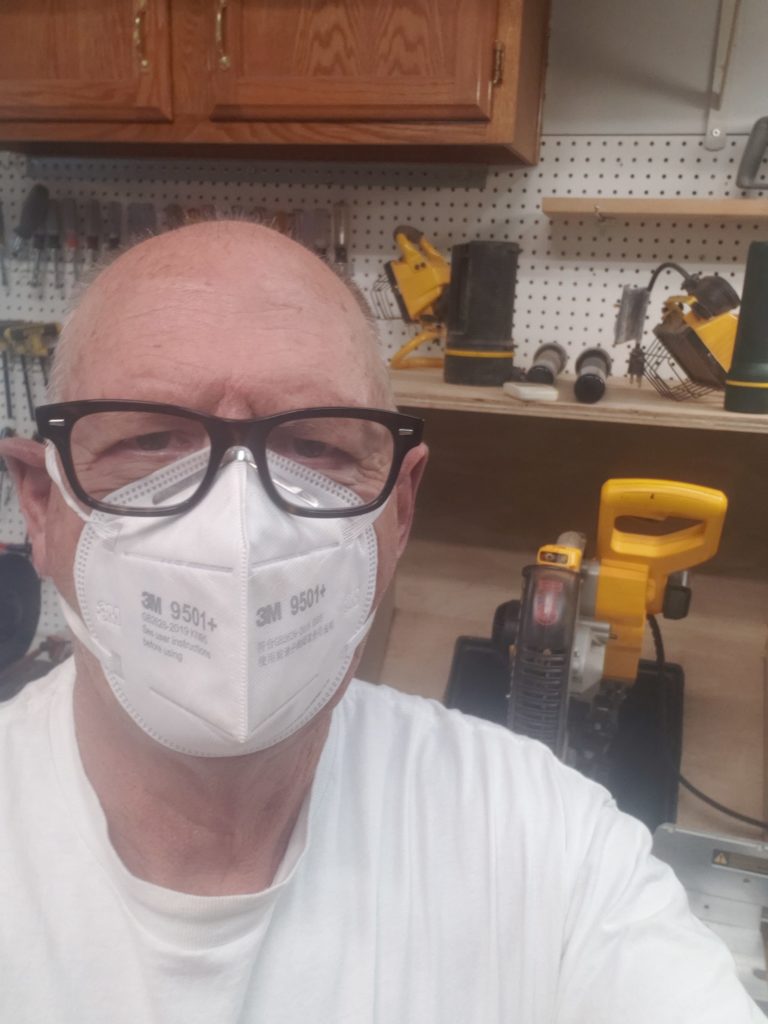
There are two separate factors (NIOSH)uses to help us find the right dust masks and respirators for work we are doing: Each rating begins with one of the following letters; N, R or P. These letters tell us how effectively the mask filters out dangerous oil-based fumes and other toxins. Each of these letters is followed by the percent of fine dust particles and oil-based fumes that the mask removes from the air you inhale.
For example: Masks with the letter ‘N,’ are not resistant to oil fumes, masks with the letter ‘R’ are somewhat resistant to oil fumes, then those with the letter ‘P’ are strongly resistant (oil Proof).”
This means a mask with an N95 rating will filter out 95% of fine dust particles from the air but it will not protect your lungs from oil-based fumes.
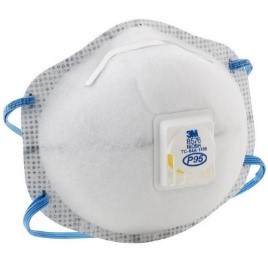
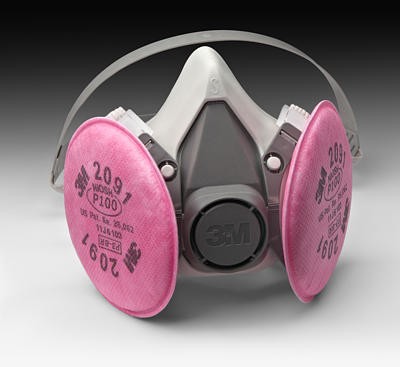
To filter out oil-based fumes and sprays you need a mask with a “P95” rating. However, a “P100” rating is necessary when working with materials that contain mold, lead or airborne coatings and sealants.
Respirators with a P100 rating use activated charcoal filters and fit tighter around your face. P100 respirators clean the air of most particles and oil-based fumes, but you need to change the filters after about 40 hours or they might become clogged.
Activated Charcoal Respirators:
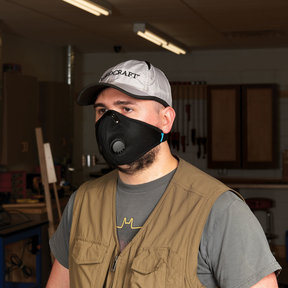
Masks with activated charcoal filters are becoming popular because they often fit tighter and are more comfortable than N95 masks. According to RZmasks website the activated charcoal filters in this mask filter particles as small as 0.1 microns.
Caution: Surgical Masks
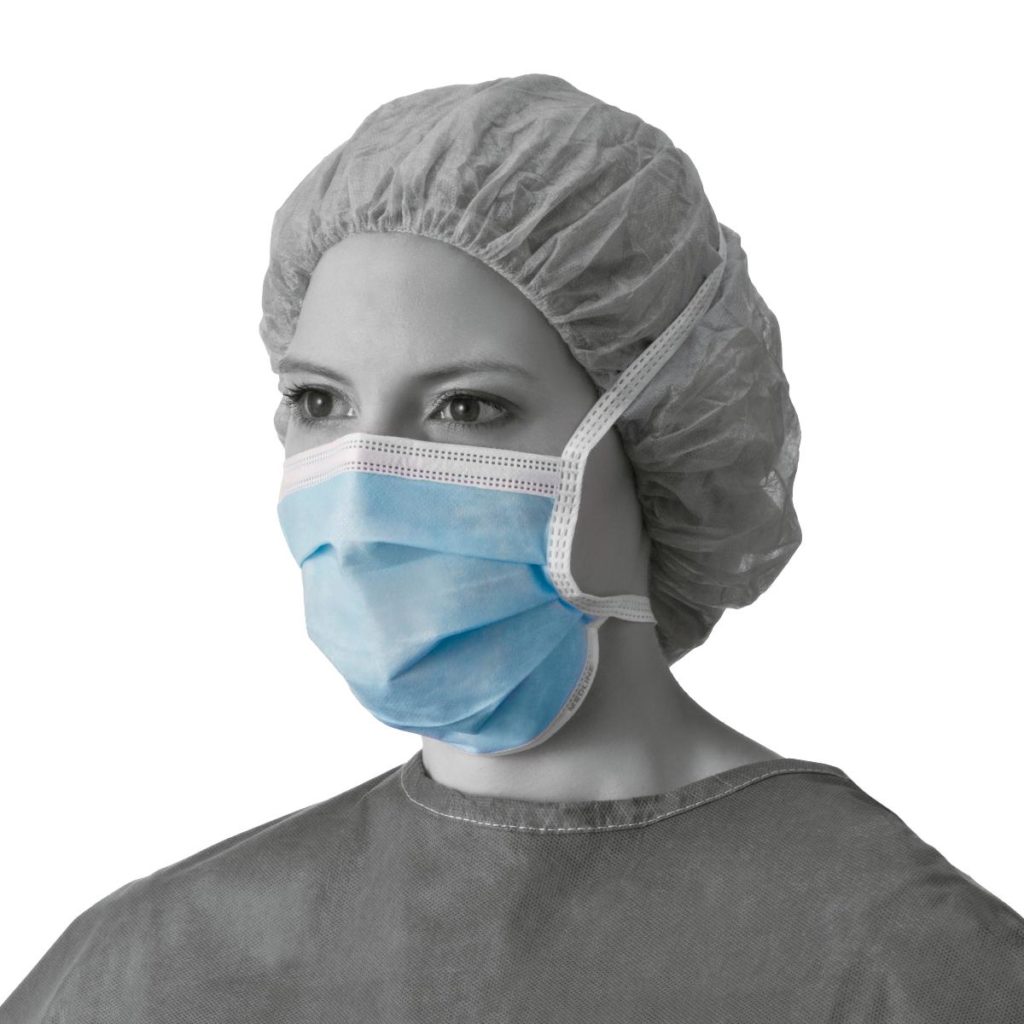
Surgical masks, like this one from Harmony Lab and Safety Products, do not provide the necessary protection for working in a woodshop. They will help prevent the spread infectious disease, but they will not protect you from inhaling dust and oil-based fumes.
